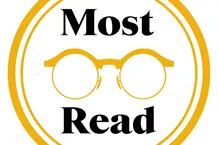Struck in relief it bears a Phrygian cap (liberty cap) on a pole emblazoned Free with a banner reading City of Charleston.
These badges were required by law to be worn by formerly enslaved men and women in Charleston between 1783-89. They symbolised the constant surveillance and control imposed by authorities, but also provided a form of legal recognition in a society where the freedom of an emancipated African American was precarious.
Only around 600 free people of colour are noted in Charleston’s 1790 census and precious few of these badges of subjection have survived. This example, offered for sale at Fleischer’s Auctions in Columbus, Ohio on May 14-15 is only the 11th known.
It was acquired sometime in the first half of the 20th century by insurance executive and collector of American political numismatics J Doyle Dewitt (1902-72).
The reverse indicates it was made (probably by a local smith) from an obsolete copper plate previously used for printing currency. Despite reconfiguration, words and phrases such as ‘Treasury of’ and ‘deposit’ are clear.
The engraved Roman numeral X suggests it was issued immediately after November 1783 when an ordinance was enacted requiring every free individual of African or mixed-race descent aged 15 or above in Charleston to procure a badge from the city at a cost of five shillings. The badges were to be worn visibly on the breast, suspended by a string or ribbon, with a penalty of £3 imposed for non-compliance.
Estimated at $15,000-30,000, this – ‘one of the most significant relics of American slavery ever made available for public acquisition’ – was among the most watched items of the month on the LiveAuctioneers platform with more than 150 bidders eyeballing its progress.
The hammer price was $110,000 (£87,000) with the buyer’s premium charged at 18%.






